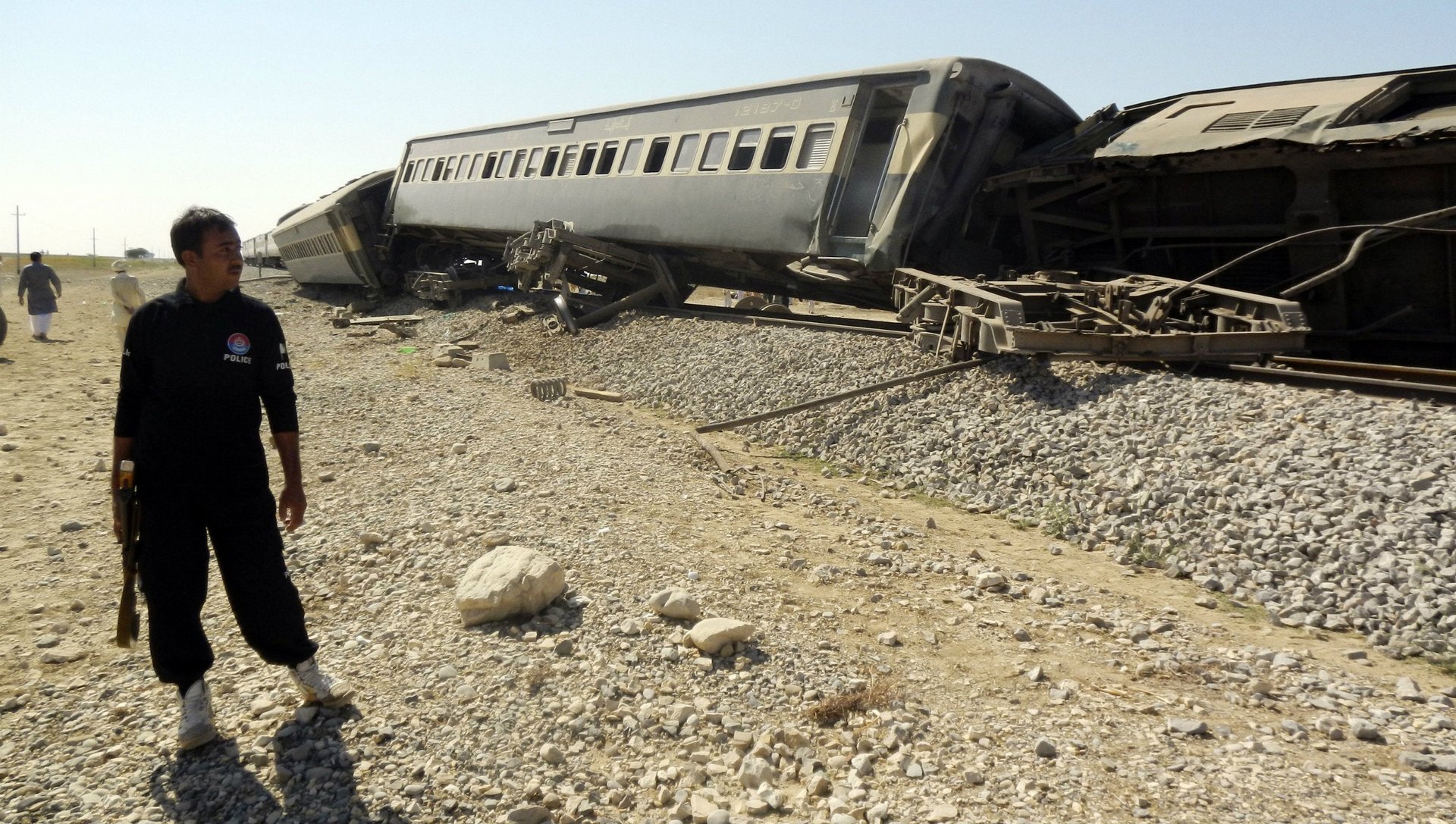China is investing $46 billion to carve out a route through one of the world’s most dangerous regions
Chinese president Xi Jinping visits Islamabad this week, where he will sign agreements to spend almost $46 billion on energy and infrastructure projects to be built along an “economic corridor” between Kashgar in China’s western province of Xinjiang and Pakistan’s Gwadar Port, soon to be operated by a Chinese state-owned firm.


Chinese president Xi Jinping visits Islamabad this week, where he will sign agreements to spend almost $46 billion on energy and infrastructure projects to be built along an “economic corridor” between Kashgar in China’s western province of Xinjiang and Pakistan’s Gwadar Port, soon to be operated by a Chinese state-owned firm.
The new 3,000 km (1,500 mile) network of highways, rails, and oil pipelines will give China quicker access to Europe and the Middle East, lessening Pakistan’s dependence on its few existing and overwhelmed ports. But there’s a catch: the route runs through one of the world’s most dangerous regions, Pakistan’s volatile Balochistan province, home to an insurgency that dates back decades and the site of near-daily fatal violence, including attacks on police, suicide bombings, and jailbreaks.
“The project faces daunting challenges” because of the security situation, writes analyst Ghulam Ali for the Central Asia Caucuses Analyst. The Khyber Pakhtunkhwa and Baluchistan provinces, where the corridor will be located, “face a low-scale insurgency,” he writes, and some Baluch tribes oppose the work. Until these local challenges are addressed, the project “will remain a dream.”
According to Pakistan’s minister for planning and development, China will invest about $34 billion in energy projects as well as provide almost $12 billion in loans for infrastructure projects to be built along the corridor over the next 15 years. The project would provide China with the shortest possible route to importing oil from the Gulf, as Global Risk Insights notes:

Balochistan is Pakistan’s largest and poorest province, a sparsely populated, water-scarce mountainous region home to Baloch tribes who have been fighting for their independence since the 1970s, along with Islamist militants with links to al Qaeda and the Taliban, and operatives of the East Turkestan Islamic Movement, a Uighur separatist group that China fears is stirring unrest in Xinjiang. It is also home to natural resources including coal and iron ore, which Baloch independence activists say China is exploiting.
There’s talk of a 12,000 person security force to protect Chinese workers along the route, which is likely to be announced during talks this week.
Chinese workers have already been attacked by insurgents that accuse foreign companies of looting local resources. In 2013, Baloch insurgents attacked foreign-owned fuel trucks in the Changhi district. In 2006, three Chinese at a cement plant were killed by the Baloch Liberation Army, who also killed three Chinese engineers working on the Gwadar port in 2004. Earlier this month, just days after China announced building a pipeline between Pakistan and Iran, Baloch insurgents gunned down 20 laborers in the province.
Optimistic analysts say that Chinese investment could bring stability to the area and succeed where the United States could not. Starting in 2009, the US pledged about $7.5 billion in aid over the course of five years in hopes of bringing stability to the region and deterring terrorism, a project that a former senior Pentagon official handling Pakistan at the time now calls a “dramatic failure.”